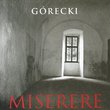| All Artists: Anton Rubinstein, Leslie Howard Title: Anton Rubinstein: Complete Piano Sonatas Members Wishing: 0 Total Copies: 0 Label: Hyperion UK Release Date: 9/17/1996 Album Type: Import Genre: Classical Styles: Chamber Music, Forms & Genres, Sonatas, Historical Periods, Classical (c.1770-1830), Romantic (c.1820-1910) Number of Discs: 2 SwapaCD Credits: 2 UPC: 034571120072 |
Search - Anton Rubinstein, Leslie Howard :: Anton Rubinstein: Complete Piano Sonatas
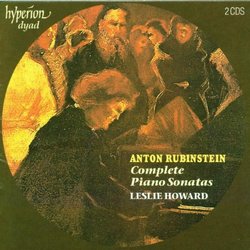 | Anton Rubinstein, Leslie Howard Anton Rubinstein: Complete Piano Sonatas Genre: Classical
|
Larger Image |
CD DetailsSimilar CDsSimilarly Requested CDs
|
CD ReviewsHoward and Anton Rubinstein at their best Alex Serrano | Perrysburg, Ohio United States | 07/06/2001 (5 out of 5 stars) "Leslie Howard has been so thoroughly inmersed in his account of Liszt's complete piano music that one may find it hard to beleive he play anything else convincingly. And that is in fact what he is able to pull off in this double cd. Rubinstein, here after a long time gets some decent reading and Howard makes a strong case for bringing back this composer to the spotlight. As much as the music may at times seem overblown and uneven, there is a lot here which is worth a revival. And one has to congratulate the label Hyperion for bringing composers such as Rubinstein, Medtner, Alkan, out of their obscurity with great pianists and probably the best sound any label is currently offering. As for Howard and Rubinstein, they are both at their best here. Howard's playing is virtuosic, lyric, and his readings are concentrated(unlike his Liszt edition which suffers from a lack of attention to detail and just seems to be painting long brush strokes - understandable due to the huge body of work involved but not excusable) and this, besides a couple of concert encores is the more involving music Rubinstein ever produced." BE THE 1ST PERSON ON YOUR BLOCK TO OWN THESE RARITIES! Alex Serrano | 09/27/1999 (4 out of 5 stars) "Anton Rubinstein was once spoken of in the same breath with Liszt. He was as respected a composer as he was a performer. His once popular music had been forgotten. This is due to many factors. Certainly first among them being a deadly mixture of reactionary conservatism and a tendency to go on far too long. His best works are these sonatas. The best among them being his youthful (he was in his late teens) Sonata in e minor. They are all worth hearing and Leslie Howard's performances are truly 5 star efforts (the CD gets 4 stars because Rubinstein - even at his best - is just not a composer of the first rank). This is a CD for the adventurous among you." "The Michelangelo of Music" Hexameron | 06/11/2007 (5 out of 5 stars) "Does Anton Rubinstein, the greatest pianist after Liszt, the founder of Russia's St. Petersburg Conservatory, and the composer of over one hundred compositions deserve such a title? Hans von Bulow seemed to think so. Whether Bulow ascribed such a fanciful title to Rubinstein's playing or to his compositions is debatable. But after my own lengthy perusal of Rubinstein's Piano Sonatas, I'm definitely in the mood to defend Rubinstein's epithet as a "Michelangelo of Music." Furthermore, I must also praise Leslie Howard's passionate and flawless performances. He brings out the best in these works, playing with fire, energy and musicality.
Condensing all of my enthusiasm for Rubinstein's Sonatas into a single review is not easy. The neglect of these piano works is almost as unjust as the fate of Alkan's, Medtner's, Thalberg's and Henselt's music. From the opening Allegro appassionato of the First Sonata in E minor, Rubinstein asserts himself as a worthy piano composer. In that first movement he establishes his two powers of melody: forcefully expressive and lyrically beautiful. All four movements are notable, and the last "Moderato con fuoco" is an exciting thrill-ride of unabashedly Romantic extravagance. Summarizing the Second Piano Sonata in C minor in a few sentences is difficult, as each movement has a wide range of interesting characteristics. Suffice it to say, the entire breadth of this work is admirable, well constructed, and gorgeous. The last movement marked "Vivace" is just a tour-de-force of passion in the manner of Chopin. Rubinstein's last two Sonatas grow larger in size and scope. The qualities of the Third Sonata in F major are easily recognized by the stirring first movement, one that blends brilliant themes with melodious transition sections. Honestly, though, the "Andante" is the most memorable: it's a product of Rubinstein's love of Chopin. Indeed, the main theme is like a tender and lilting Nocturne; Chopin's influence is beyond doubt. And "Stunning" is the only word I can use to describe the rousing "Allegro vivace" of this Sonata. The lion of the keyboard, Rubinstein, never seems to try for virtuosic excess and yet his music is brimming with volcanic explosions and climaxes comparable to the Romanticism of Liszt. The Fourth Sonata was written in 1876, almost 30 years after his First, and it's an epic work of amazing proportions. The first movement reaches 15 minutes in length and showcases mastery of sonata-form, not to mention outstanding melodic ideas and originality of phrases. I would point out, for example, the highly dissonant and motivic experiments in the second movement. It would seem Rubinstein's reputation as a conservative is misplaced. I wish I could comment on every movement but a dozen "excellent" and "great" remarks would surely get repetitive. The fact that Rubinstein's Sonatas are rarities astounds me. Every single one is accessible, unique, virtuosic yes, but full of expressive content. All of the bravura, however, is checked and even bolstered by good old fashioned melody, harmonic progression, and Classical form. He uses everything from Sonata-Allegro, Minuet and Trio, Theme and Variations, to Rondo: Rubinstein may have known Liszt but he was clearly anti-Wagnerian and more at home with Chopin and Brahms. For some reason he is consigned to complete obscurity today, mentioned only in the music history books as a great pianist and founder of a famous conservatory. Hopefully, the efforts of Leslie Howard and Hyperion will bring the spotlight back on this "Hercules of the Piano," who was actually a perfectly fine composer, too! Bottom line: David Dubal makes the following assertion: "Rubinstein was a gifted melodist, but unfortunately he said nothing new." Such a comment may have some truth to it, but did Brahms say anything new in his three Sonatas? Did Schumann say anything new in his? Who cares, I say, when Brahms', Schumann's and, I think, Rubinstein's, are all splendid piano compositions of the Romantic era?" |

 Track Listings (7) - Disc #1
Track Listings (7) - Disc #1

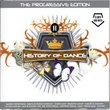
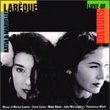
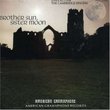
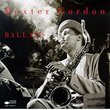





![Across The Universe [Deluxe Edition]](https://nationalbookswap.com/cd//m/51/1251/1241251.jpg)
